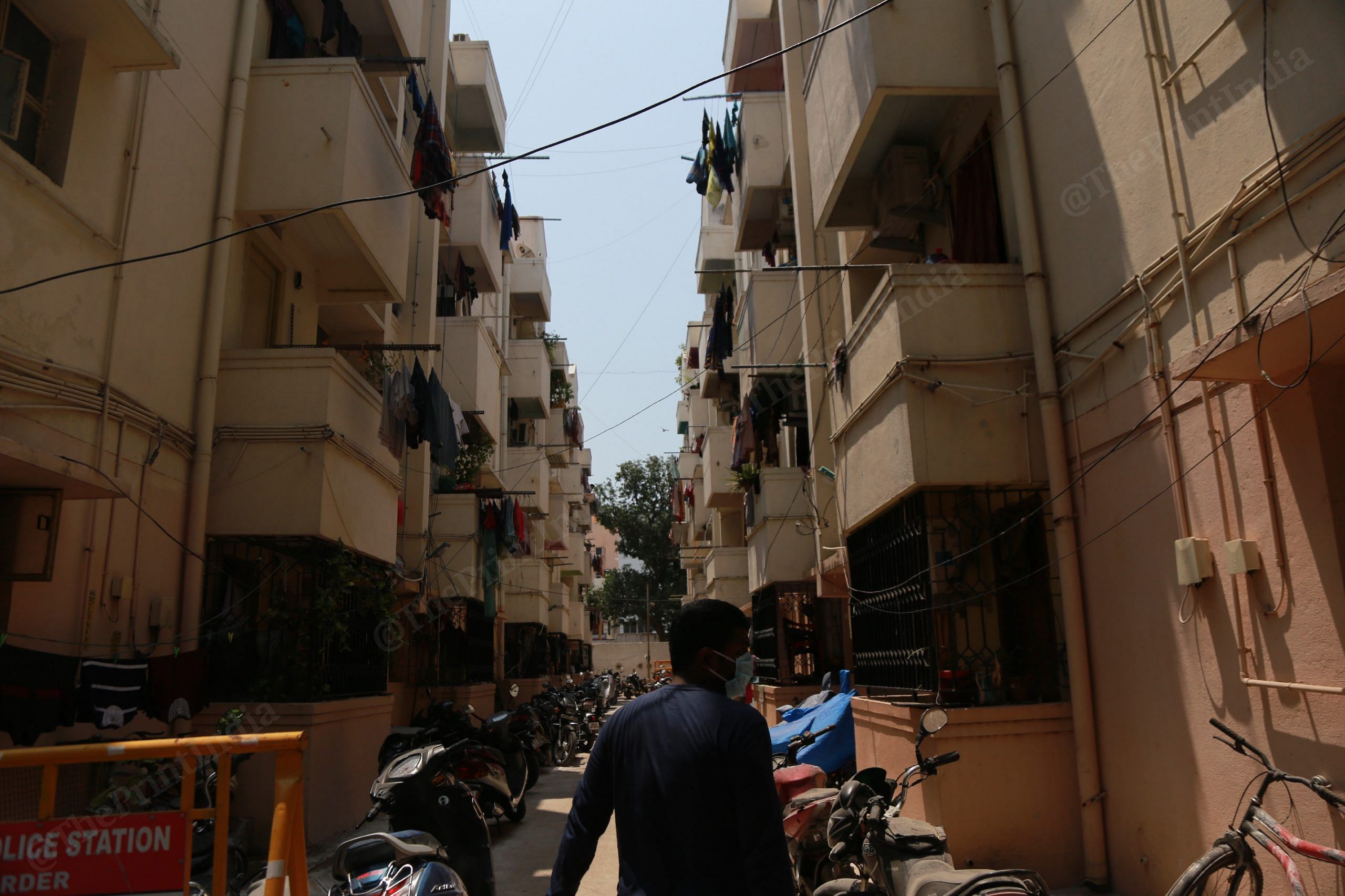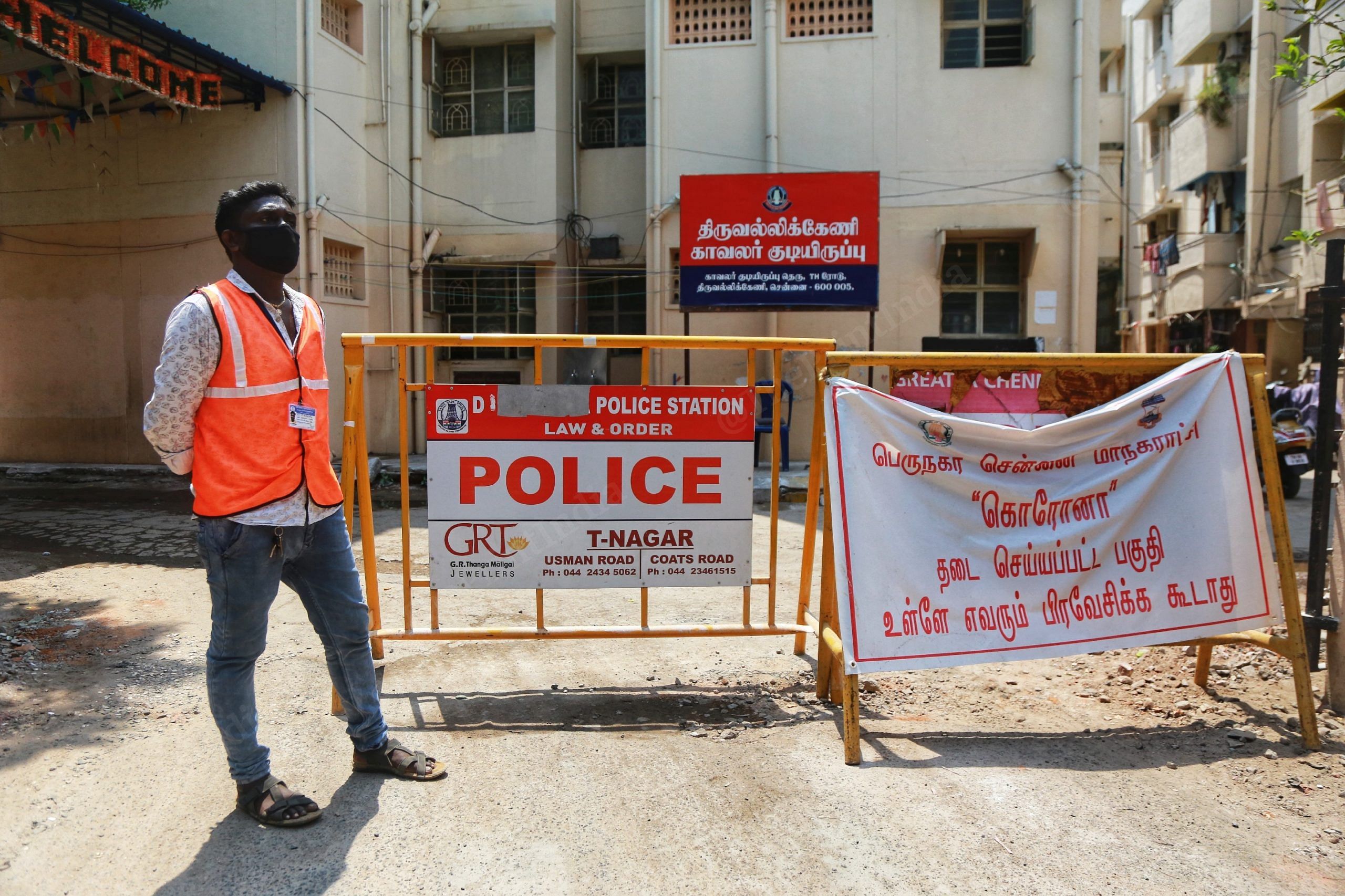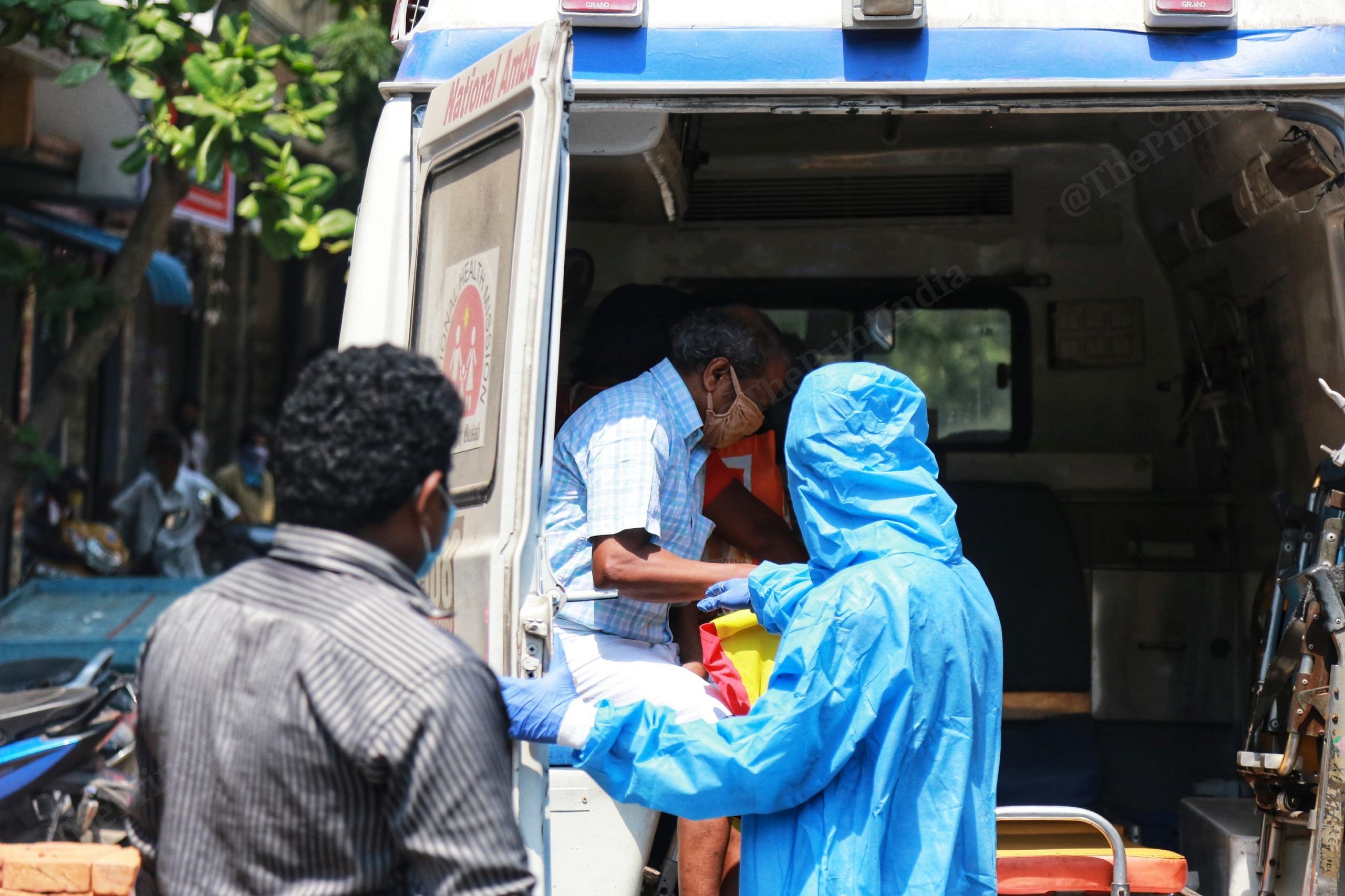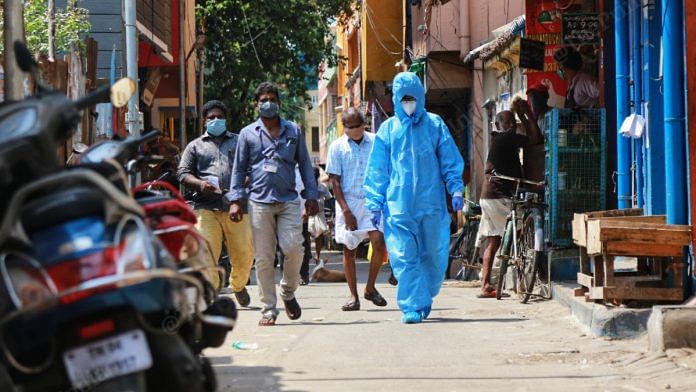Chennai: Tamil Nadu, currently the state with second highest number of Covid-19 cases in India, Thursday recorded its highest spike in infections yet. With numbers set to go up, on account of air and rail travel routes opening up, health officials aren’t perturbed and say they are ready to handle the situation.
“That is why it is called a pandemic,” said Beela Rajesh, Tamil Nadu’s Health Secretary who has been at the forefront, coordinating efforts. Speaking to ThePrint, she said the disease was a challenge not just for their state, but the world over.
Tamil Nadu reported 827 new cases Thursday, taking its total count of coronavirus cases to 19,372. In capital city Chennai, 559 new cases were reported. Overall, Chennai accounts for more than 12,000 cases of the state’s tally.
#Update
559 Covid-19 Positive cases in Chennai today. #Covid19Chennai #GCC #Chennai #ChennaiCorporation pic.twitter.com/qnE7hVa0Jf— Greater Chennai Corporation (@chennaicorp) May 28, 2020
Since air and rail travel have resumed, the number of cases of coronavirus have increased substantially in the state; more than 100 of the new cases reported were of people arriving from other states.
However, Tamil Nadu is a far second to Maharashtra’s nearly 60,000 cases.
Rajesh says that the good news in all this is that Tamil Nadu has managed to scale its testing facilities from just one lab in February to nearly 70 labs now. According to the state government’s data, over 4.5 lakh tests had taken place till date.
In Chennai alone, 3,000 to 4,000 tests are conducted daily, said G. Prakash, Chennai Corporation Commissioner.
Also read: Doctors, IAS officers & a scientist — the 5 women leading India’s fight against Covid-19
Testing and tracing
Prakash, who has been at the forefront of Chennai’s fight against Covid-19, said that the city was conducting 15,500 tests per million people, which means they are conducting the “highest number of tests in the country”.
As of 22 May, Tamil Nadu was testing 4,675.9 per million. India was testing 2,527 per million people while Delhi was at 8,340.3 and Rajasthan 3,492.7.
One of the bigger testing exercises the state had to undertake was when a coronavirus cluster emerged in Koyambedu earlier this month.
According to officials, about 2,000 cases were linked to the 65-acre wholesale market, located in Chennai’s Kodambakkam area. Cases spread to the rest of the state from here, and even nearby Andhra Pradesh, making it the biggest cluster in Tamil Nadu.

According to the spokesperson for the Dravida Munnetra Kazhagam (DMK), the opposition party, the Koyambedu cluster was a result of poor planning by the government.
Manuraj S. said the government had planned to shut down the market, leading to panic buying. “The Koyambedu case showed complete mismanagement by the government of Tamil Nadu,” he said, noting that this was a key turning point.
Prakash said the Chennai Corporation was intensively conducting contact-tracing to limit the spread of the virus, but given the large volume of people going in and out of the market, it had become extremely difficult to trace the initial cases.
“The market sees a daily footfall of almost 70,000 people everyday… it was almost impossible to trace the initial spreaders,” he said. Prakash said they had eventually managed to traced every case, nearly containing the Koyambedu cluster.
Also read: Delhi to Chennai, wholesale vegetable mandis are turning into festering Covid hotspots
Containment
Chennai was divided into many containment zones to help deal with the virus. With the lockdown being eased, the number of containment zones were reduced to 420 Tuesday from more than 1,150. As of Thursday, there are a total of 305 containment zones across the city.
One of the containment zones is in Triplicane, which was closed off after four police officers tested positive for Covid-19. The police staff quarters is located in the area.

The police staff quarters was tagged a containment zone from the start of the lockdown after a traffic police constable, Laxmi Narayan, tested positive. However, unlike other containment zones, people from the building complex can go to the nearby market, while police personnel keep moving in and out to report for duty.
The containment zone is barricaded and managed by an official from the Chennai Corporation who keeps a record of names of people in the area.
Over at Royapuram’s East Kalmandapam road, a man and his son tested positive, yet the area was not designated a containment zone. Instead, a sticker was pasted outside the house. The Royapuram area in Chennai has recorded more than 2,000 positive cases so far.
Explaining why the areas were marked differently, Rajesh told ThePrint that the initial containment plan followed a 5 km-radius rule to mark a zone, along with a 2 km-radius buffer zone. Since the lockdown has been eased, the containment zones are being reduced. If no positive case is reported for 14 days, an area isn’t considered a containment zone.
“We are making it more individual based. Only if there are five or more cases in one area is it treated as a cluster,” he said.
When the last lockdown extension was announced, Prime Minister Narendra Modi left it up to states and district administrations to decide how areas would be categorised. The decision came after several states said the decision had to be left to local governments rather than central agencies.
Also read: Tamil Nadu is containing Covid-19 well, and it is not following Bhilwara model
Quarantine and surveillance
Apart from aggressively contact-tracing people, Tamil Nadu is also quarantining all passengers who come by air or train. On reaching the state, all passengers are taken to a government quarantine facility. Over here, they have to undergo two tests seven days apart before being released. If the second test is negative, people are allowed to go home where they will continue their quarantine for another seven days.
When asked how the state ensures that home quarantine rules are followed, Rajesh said people are stamped with indelible ink so everyone knows they need to be in quarantine.

Tamil Nadu is also undertaking city surveillance measures.
As many as 12,000 officials visit 250 households each for 90 days to check for people with any Covid-19 symptoms, Rajesh told ThePrint. In addition to this, approximately 150 fever camps have been set up across the city for people experiencing flu-like symptoms.
Prakash said the commission had also ordered a fine of Rs 100 to ensure people wear masks at all times. So far, they have collected nearly Rs 50 lakh.
Also read: Testing smartly, community care part of Kerala’s Covid strategy: Health Minister Shailaja
Going forward
Officials say their main focus is to contain the spread of Covid-19 and flatten the curve as much as possible.
“We had three months to learn about the disease during this lockdown. It gave us the time to get ready in terms of infrastructure — be it either hospitals, manpower or equipment,” health secretary Rajesh said.
She further said that the government has been ramping up equipment in hospitals, be it oxygen tanks, antibiotics or other medicines. “We are constantly forecasting. We have a three month forecast along with a 30 day forecast,” she said.

Prakash says they have already planned for the long-term.
“We have 0.7 per cent deaths rate and near-50 per cent recovery rate of Covid-19. However, the main challenge going forward would be to strike a balance between regular medical services and Covid services. To deliver those services also without a break to Covid-19. I cannot stop immunisation and maternal health services because of Covid,” he said.
The Chennai Corporation Commissioner said the city currently has 140 primary health centres, 19 urban community health centres, 19 standalone dispensaries and 15 hospitals under Ayush schemes. “We have almost 10,000 to 12,000 deliveries a year,” he added.
To tackle non-Covid-19 related medical cases, Rajesh said the focus is on vulnerable groups.
“The state of Tamil Nadu has constituted 11 committees in private-public partnerships, which have top experts from the field along with nodal officers of the government. One such committee is for diabetes,” she said.
Also read: To meet world average, India must add at least 10 lakh doctors to healthcare force




ciovid testing only for their own tamil people ? n Tamil nadu most of the poor migrants suffering like a second citizen ? Tamil people should care and respect to other language migrant there ? but so far it is very sad Tamil nadu people beating the migrant laborers . Tamil people helping only to their own people not other language migrants. …it is very sad they think and treat other people like a second citizen with rude nature…..in other side, very less people are good there and respect others language people.
Happy to hear something about Chennai from Theprint. 👍would like here more news about Chennai in coming days